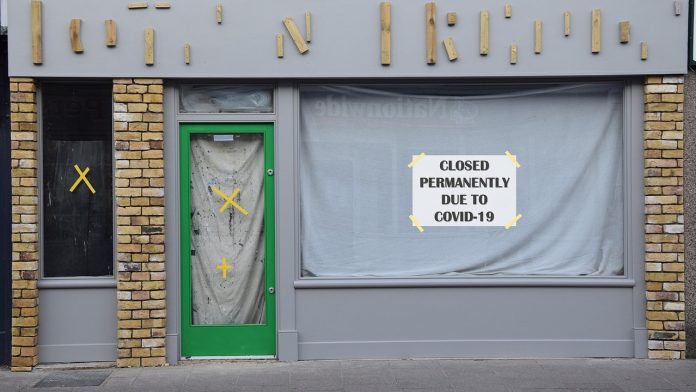An uneven economic recovery from the pandemic is increasing the divide between the haves and have-nots, and the K-shaped recovery that financial analysts are touting clearing demonstrates that a rising tide does not raise all boats. So which boats are sinking and which are sailing onto great fortunes? As reported by the Daily Mail, based on data from Forbes, “US billionaires gained $845 BILLION during the first six months of the pandemic with Jeff Bezos pocketing $73 billion and Elon Musk $67 billion.” Clearly, the “haves” are at the helm of yachts navigating their rapidly rising tides of good fortune while small businesses are floundering and drowning in rip tides.
The K-shaped recovery for the economy demonstrates the gap widening between the white-collar and blue-collar workers, and the same is happening with businesses with the “white-collar” representing the large businesses and the “blue-collar” as the small businesses. Over the next 9-12 months, the impact will be shattering, with many small businesses closing their doors for good. As a country, we need to help those in need, and while thankfully we are finally waking up to see that race issues exist — no one talks about class warfare in business.
Many small businesses may still be open today, but they are living on borrowed time by delaying payments to banks, landlords and other creditors and using up whatever savings they have. Many small business owners don’t know what to do next with their lives and they are unwilling to walk away from years and decades of hard work. Until they close, these businesses are running in the red; robbing Peter to pay Paul. While many of these companies are not businesses that make a lot of profit during the best of times, they are businesses that bind communities closer and that we count on to provide jobs.
Imagine being a 55 or 65-year-old business owner that will have to close their enterprise down and move on. This is a very difficult scenario for people who have invested their energy and passion, often times, seven days a week for years and years. These people are fighters, that’s what they have done for decades, so they won’t go down until the very end.
Right now, thanks to public pressure, creditors have been slow to enforce their rights. Let’s face it, the banks would love to foreclose now but they are fearful of the negative impact on their image. Courts are delaying actions, sometimes simply because they are too backed up now to hear cases. But eventually, the media and societal pressure will dissipate and many small businesses will close. Many are simply “dead man walking.”
When an economy is depressed, those with money benefit as they can pick up assets inexpensively and benefit from the rebound. Look at business and witness the boom of many big businesses such as Amazon and Postmates. Great businesses, right? But when you look a little closer, you see how much Amazon is charging small businesses to carry their merchandise (30-33% surcharge) and what Postmates, as well as Seamless, GrubHub, Uber Eats, etc.) is charging restaurants with commission rates ranging from 15 to 30%.
Do most small businesses have the money and time to ‘pivot’ or invest in new technologies, so that they can work from home? No! But big businesses do, and the wealth gap widens again significantly. Yet, we ask small business owners to employ and serve every day.
As much as our country tries to promote themselves as helping small businesses, the numbers don’t lie. The federal government provides significant monetary help to many big businesses, but thousands of small businesses have been rejected for Paycheck Protection Program (PPP) and Economic Injury Disaster Loans (EIDL). These programs were developed to help floundering businesses in situations like this, but yet, the deeply connected, big business, big names come calling and make their money grabs. Why is a minor league baseball team owned by the family of the governor of Ohio given funds when a flailing small business owner is denied? Why is a large franchisee of Wendy’s, Taco Bell and Pizza Hut restaurants, whose CEO is a major donor to President Donald Trump, receiving loans totaling $15 million to $30 million? And no one could think Kanye West is in dire straits, but he received significant funds for his Yeezy brand. Even Rosenblatt Securities, an institutional broker, was able to get federal assistance.
When I was young, my father told me that competition was a good thing, but what if the business part of our society is not running on a level playing field? As a society, we are waking up to the realization that all individuals are not on a level playing field, but no one is looking that way at small businesses. Imagine a country where 70% of our small businesses no longer exist. You don’t need to because that may be a reality soon.
Find a Home-Based Business to Start-Up >>> Hundreds of Business Listings.














































